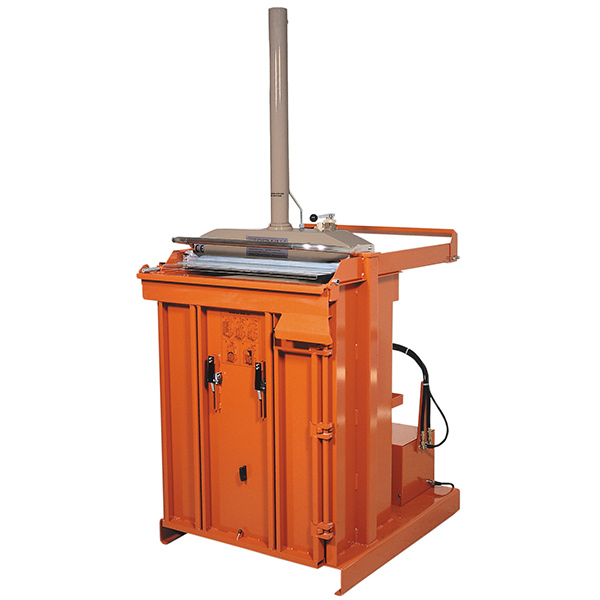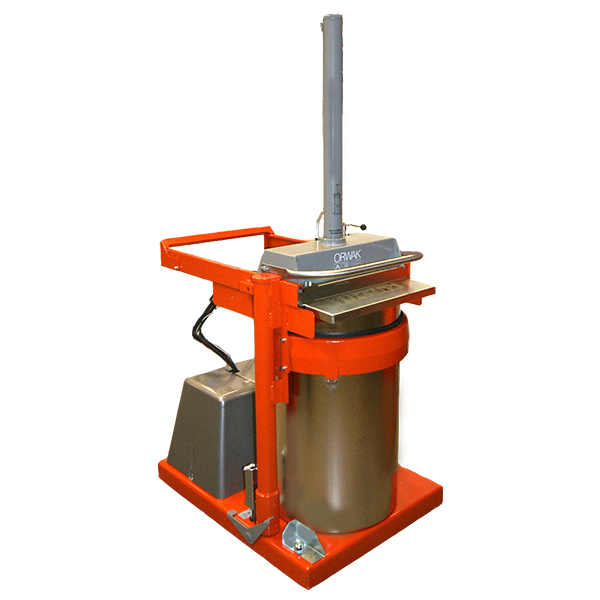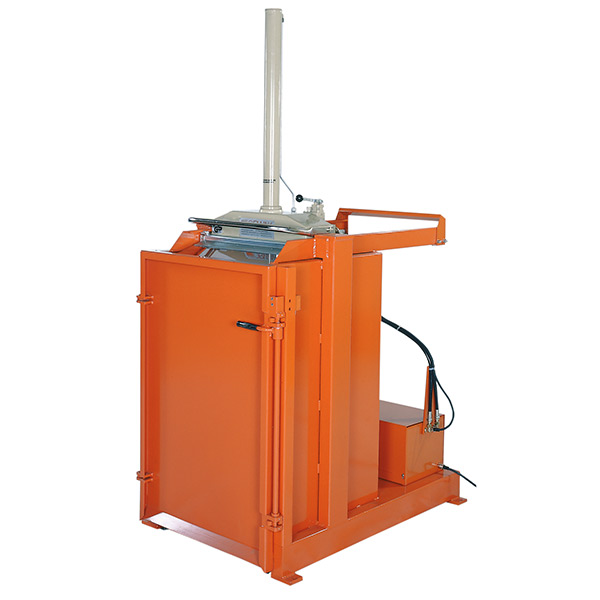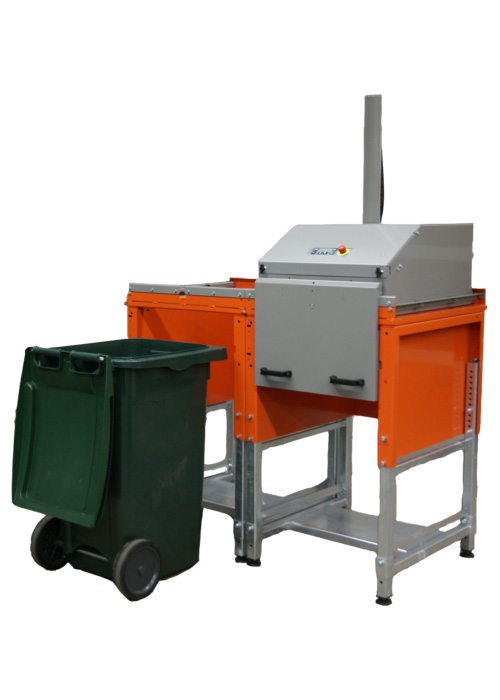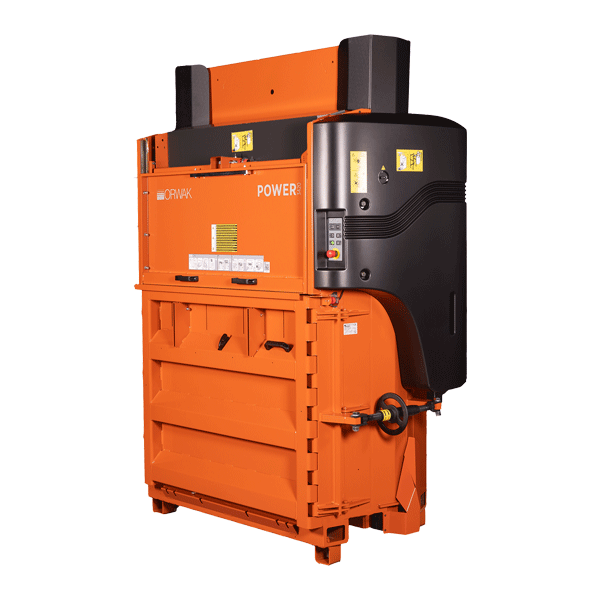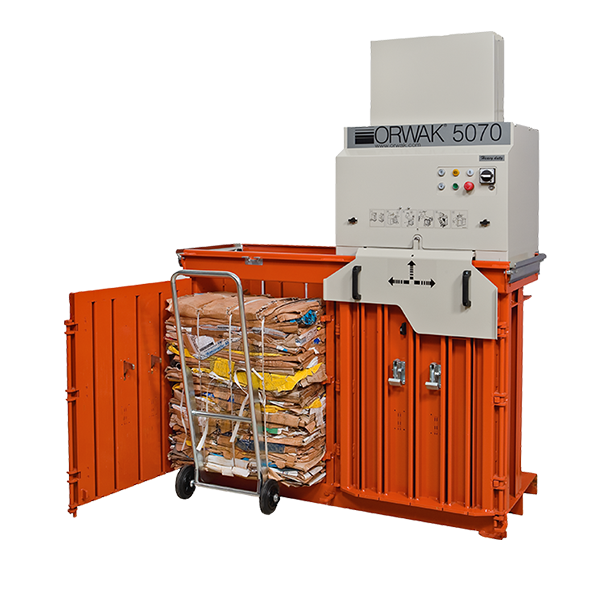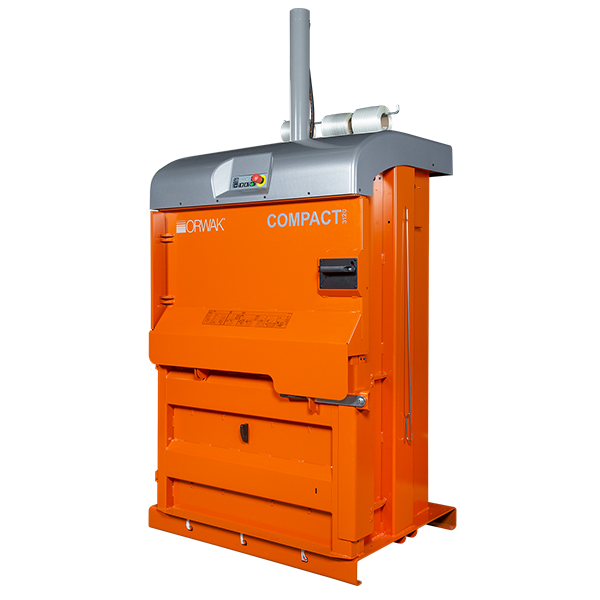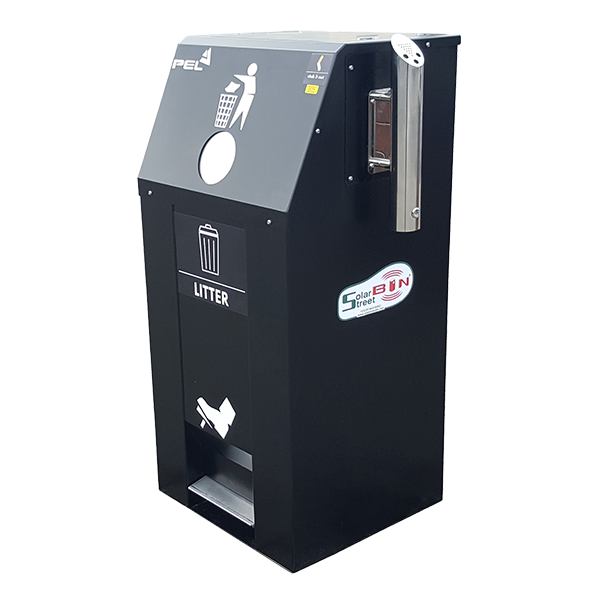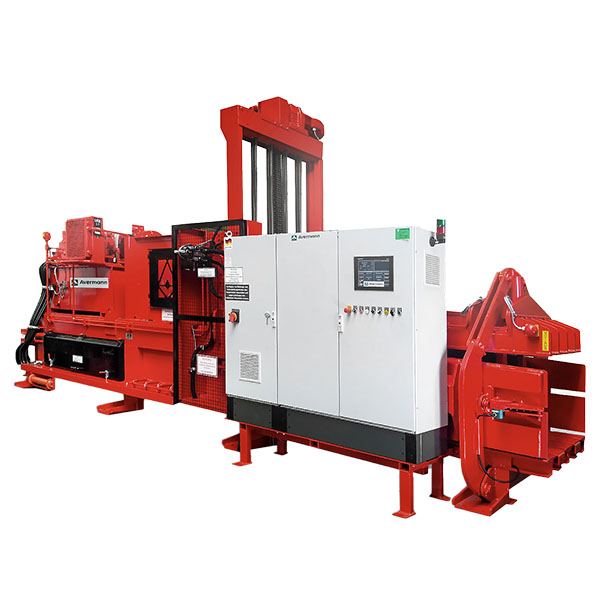Compactors
Compactors are designed to minimize waste volume, thus optimize storage capacities and reduce hauling costs. They create all these benefits by compressing large volumes of trash into a contained area. Further effects of handling waste through a compactor are the reduction of odor, vermin infestation, pilferage and fire hazards.
Use Cases:
- A wide range of facilities and companies that regularly generate large quantities of waste or recycling materials like hotels, hospitals, and malls
- Industrial setups with consistent waste output
Advantages
- Allows waste bales to be sold on the market
- Reduces hauling costs through the need for fewer pickups
- Reduces needed manpower for waste management
Keep in mind
- Need for initial investment if leasing is not an option
- Effectiveness is reached via a waste management concept
- Personnel needs to get acquainted with functionality
Types of Compactors:
In-bag compactor
Compresses waste directly into durable plastic bags resulting in a practical solution for compacting waste in a clean and closed system.
Use Cases: Retail outlets, small / medium industries, hospitality
Advantages: Efficient and hygienic compaction of all types of residual materials
Keep in mind: Not suitable for all types of waste
Drum compactor
Compacts hazardous substances such as jars and cans/buckets with paint and oil or other chemical residues directly into drums.
Use Cases: Companies with relevant waste streams
Advantages: Efficient and hygienic compaction of containers with chemical residuals
Keep in mind: Requires specialised training for safe operation
In-bin compactor
Handles dry waste, streamlines the waste management process by easy compacting.
Use Cases: Perfect for the hotel and restaurant sector, retail and supermarkets
Advantages: Impressive volume reduction with a small machine
Keep in mind: Not suitable for all types of waste
wenn Kategorie vorhanden, Bild von Bergmann RP 7700 Jumbo
Stationary Compactors
Stationary compactors are permanently installed and remain at a fixed location. The compacted waste is pressed into a separate, replaceable container, which can be regularly removed for emptying.
Use Cases: Larger industrial setups with substantial waste amounts
Advantages: Can handle large volumes through powerful compaction
Keep in mind: Requires more space; higher initial cost if not leased
wenn Kategorie vorhanden, Bild von Avermann MPC 20 P/E/L/R
Press container
Press containers are mobile units that combine the compaction mechanism and the container in one integrated unit.
Use Cases: Ideal for at least medium-sized facilities or locations that have periodical high waste production
Advantages: Flexibility in placement and emptying
Keep in mind: Requires space; higher initial cost if not leased
wenn Kategorie vorhanden, Bild von Avermann SP-B-32
Transport container
Transport containers are removable units of stationary presses.
Use Cases: Transport element of press containers ready for transport
Advantages: Variable container sizes are available depending on the intended use and type of press
Keep in mind: Requires more space and a waste management concept
The Interzero machines encyclopedia
Balers
Balers are integral for compressing waste materials into compact bales, streamlining handling, transport, and storage.
Compactors
Compactors are designed to minimize waste volume, optimizing storage and reducing hauling costs. They compress large volumes of trash into a contained area, reducing the number of pickups required. Compacted trash occupies less space, reducing odor, vermin, pilferage, and fire hazards.
Smart Bins
Smart bins, equipped with sensors, monitor waste levels in real-time, optimizing waste collection schedules and enhancing waste management efficiency.
Briquette Presses
Briquette presses transform waste materials into compact briquettes, which can be used for recycling or as fuel. They compact large volumes of empty packaging waste such as cardboard, empty beverage containers such as PET bottles and alu cans. A special application can also be used for beverage containers containing liquid, helping businesses dispose of products according to regulations.

